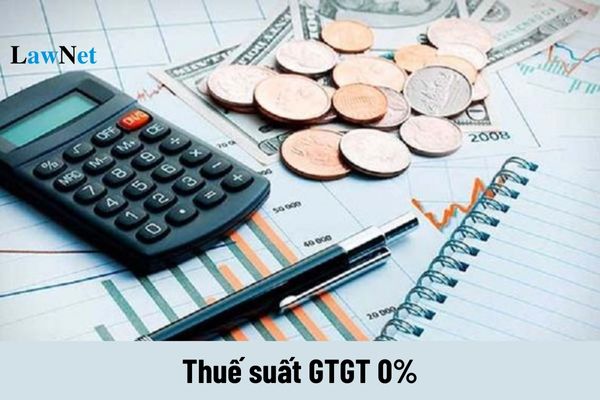Issuing VAT Invoices at 0% Tax Rate: What Are the Content Requirements?
Requirements for Issuing VAT Invoices with a 0% Tax Rate
According to Article 10 of Decree 123/2020/ND-CP guided by Clause 2 Article 4 of Circular 78/2021/TT-BTC, to issue VAT invoices with a 0% tax rate, the following contents must be included:
- Invoice name, invoice sign, invoice template sign.
- Invoice printed by the Tax Department.
- Invoice number.
- Name, address, tax code of the seller.
- Name, address, tax code of the buyer.
- Name, unit of measure, quantity, unit price of goods and services; total amount before VAT, VAT rate, total VAT amount for each tax rate, total VAT, total payment amount including VAT.
- Seller's signature, buyer's signature.
- The time of invoice issuance is in accordance with instructions in Article 9 of Decree 123/2020/ND-CP and should be presented in the format day, month, year of the Gregorian calendar.
- The digital signature time on an electronic invoice is when the seller and buyer use the digital signature, presented in the day, month, year format of the Gregorian calendar. If the signing time on an electronic invoice differs from the invoice creation time, the tax declaration time is the time the invoice was issued.
- Tax code on electronic invoices with tax authority's code.
- Charges, state budget fees, trade discounts, promotions (if any).
- Name, tax code of the organization printing invoices for invoices printed by the tax authority.
- Letters, numbers, and currency used in the invoice.

Requirements for Issuing VAT Invoices with a 0% Tax Rate (Image from Internet)
Entities Applicable for a 0% Tax Rate
According to Clause 1 Article 8 of Law on Value-Added Tax 2008, amended by Clause 3 Article 1 of Amended Value-Added Tax Law 2013 and Clause 2 Article 1 of Law No. 106/2016/QH13, the entities applicable for a 0% tax rate include:
- Exported goods and services consumed outside Vietnam, in non-tariff zones; goods and services provided to foreign customers under regulations by the Government of Vietnam.
- The 0% tax rate applies to exported goods and services, international transportation, and goods and services not subject to VAT as per Article 5 of the Law on Value-Added Tax 2008 when exported, except for the following cases:
+ Technology transfer, transfer of intellectual property rights abroad;
+ Reinsurance services abroad;
+ Credit provision services;
+ Capital transfer;
+ Financial derivative services;
+ Postal and telecommunications services;
+ Exported goods and services consumed outside Vietnam, in non-tariff zones; goods and services provided to foreign customers as prescribed by the Government of Vietnam.
What is an Electronic Invoice?
Based on Clause 2 Article 3 of Decree 123/2020/ND-CP, electronic invoices are defined as follows:
Electronic invoices are invoices with or without tax authority's code, presented in electronic data format, issued by organizations or individuals selling goods or providing services using electronic means to record information on goods or services sold as per accounting laws and tax laws, including invoices initiated from cash registers connected with electronic data transfer to tax authorities, where:
- An electronic invoice with a tax authority's code is one that the tax authority assigns a code to before the selling organization or individual forwards it to the buyer.
- The tax authority's code on an electronic invoice includes a unique transaction number generated by the tax authority's system and a character string encoded by the tax authority based on seller information on the invoice.
- An electronic invoice without a tax authority's code is one that the selling organization sends to the buyer without such a code.
Prohibited Actions in Invoice Issuance
According to Article 5 of Decree 123/2020/ND-CP, the following actions are prohibited in invoice issuance:
- For tax officials:
+ Creating inconvenience or difficulties for organizations or individuals purchasing invoices or vouchers;
+ Covering up or colluding with organizations or individuals to use illegal invoices or vouchers;
+ Accepting bribes during invoice inspections or audits.
- For organizations or individuals selling or providing goods or services, or involving parties with rights and obligations related:
+ Engaging in deceitful acts such as using illegal invoices or using invoices illegally;
+ Obstructing tax officials in their duties, specifically acts that harm the health or dignity of tax officials during invoice inspections or audits;
+ Unauthorized access, alteration, or destruction of invoice or voucher information systems;
+ Bribing or engaging in other invoice or voucher-related acts for illegitimate gain.

